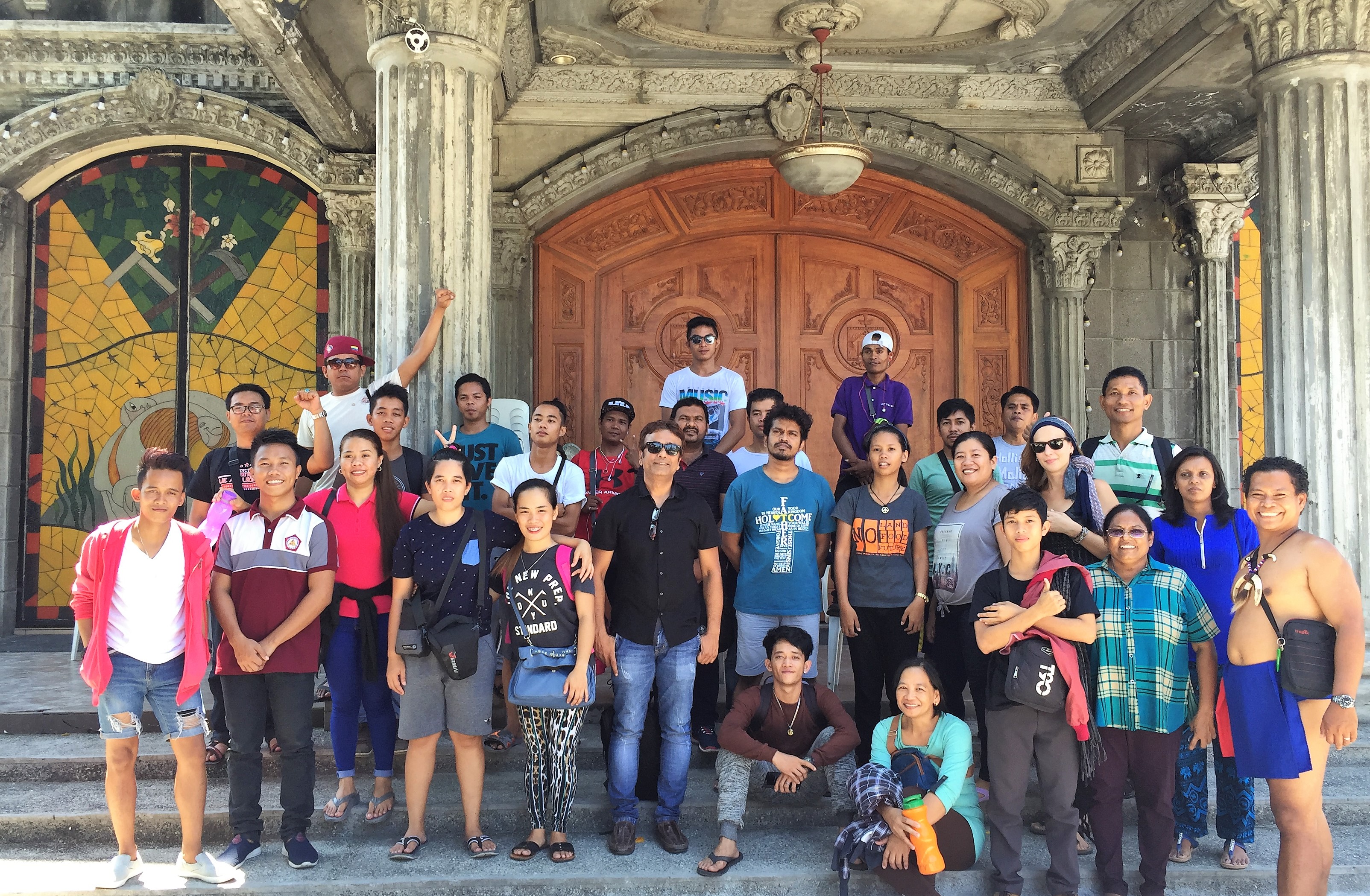
The IYCW hosted an Asian Youth Seminar in the Philippines last September 24-28, 2018. Twenty-six delegates from various organizations, partners in the Philippines and national movements in Asia participated in the meeting. The three international organizations, MIJARC, FIMARC and the IYCW developed a program with the support of Entraide and Fraternité-Belgium. It is a three-year partnership program deepening on the topic of (1) youth (2) food sovereignty and (3) gender.
Before the youth seminar itself, a two-day exchange program was held in Valenzuela City, Philippines to see the reality of the young contractual factory workers and of informal workers working in the street.
Below are some testimonies of young workers we met during the exchange:
“I am Alex Maomay, twenty-six years old, currently living in Mulawinan, Lawang Bato, Valenzuela. I am a contractual worker in a factory, and I migrated to Manila to find work. As a contractual worker, I am not sure whether I will be hired again when our contract ends in this company. Before, my only concern was to work and earn money to support my family. But when I was contacted by the YCW through Brian, I gradually understood my situation and my rights as a worker. I was motivated to do small action to change the unjust situation that we are experiencing in the company: low wages, lack of benefits, long working hours and job insecurity. We went together to the Labor Department to consult about our situation. The company heard about it and we were terminated.”
Alex’s reality reflects the situation of many young workers in the Philippines who migrated to the capital to find work and to support the family back in the provinces. However, they are facing multiple challenges in the cities like underpayment and low wages, job insecurity, long working hours, lack of social benefits and social protection, and lack of facilities to join free association. This problem may sound recurring and obsolete, but it is a reality that has never been addressed so far by the concerned authorities like the state and the employers who only aim to make profit.
“I am Edwin Llamas, thirty-six years old, married with a son. I was born in San Miguel, Bulacan and now I am living in Valenzuela City. I worked as a helper in a construction company, then as an errand boy in a shop, and afterwards as a janitor in a private school in Lawang Bato, Valenzuela City. My salary was very low, P 3,500 (USD 70) a month, and I had no benefits. Since the salary was so low, I also worked as a pedicab driver and this is where I meet Randy (YCW leader) and together we helped to set up the association of pedicab drivers.”
Like Edwin, many young workers are forced to find multiple jobs in order to meet their daily needs. The number of informal workers keeps growing in the Philippines, absorbing young people and workers who have been terminated from work, unemployed, out-of-school youth and even fresh graduates.
The two-day exchange was followed by a 3-day conference and debate. FIMARC and MIJARC who work directly in the agricultural sector shared the youth realities in the farming sector.
Many young farmers tend to migrate from rural areas to big cities or to other countries to look for better job opportunities. This is due to the lack of opportunity to carry out farm work, and the lack of government support. Many farmers do not own the land they are cultivating, and they are being paid very low wages. They cannot support their daily family needs and as a result, they become indebted to a bank and to other people. There is a lack of social protection, too. The agricultural sector is also facing the threat of land grabbing and land conversion into housing and industrial areas, which, in the long run, can lead to food shortage.

The analysis was complemented by Entraide and Fraternité, the International Movement of Catholic Students, AKMK (Alliance of Mindanao Youth for Peace) and Kilos Ka. Adding to this reality, they mentioned the lack of opportunities for students after finishing their studies, and the school curriculum which does not cater for the needs of the national economy but focuses instead on export- oriented services. In addition, privatization is not only limited to schools and universities, but also to other services like water, electricity, hospitals, food and other public services. Political and social unrest and militarization are also common phenomena in many countries in Asia.
There is widespread discrimination towards indigenous people, women and the LGBT community in the society and at work. Young women in South East Asia are forced into early marriage.
And last but not least, the climate change and calamities are affecting the continent with earthquakes, tsunamis, typhoons, floods and droughts.
A Network to Act
With all the pressing issues that young people are facing today, movements have agreed to re-echo the seminar at local and national levels, to strengthen the existing organizational network, as well as to deepen the analysis through exchanges with other sectors like indigenous people and farmers’ communities. They will use this method: (1) deep analysis of reality; (2) survey; (3) testimonies; and (4) publication.
The political action will include getting together in solidarity, mobilization, joint advocacy and lobbying at national level, and synergy with other organizations and institutions.
At the international level, one campaign will be defined in which all organizations can work together, especially on the issues related to youth income, social security and social protection.
And lastly, a second seminar is most likely to happen and will be organized by FIMARC on the issue of “Food Sovereignty” in the continental context of Africa.


 English
English  Español
Español  Français
Français